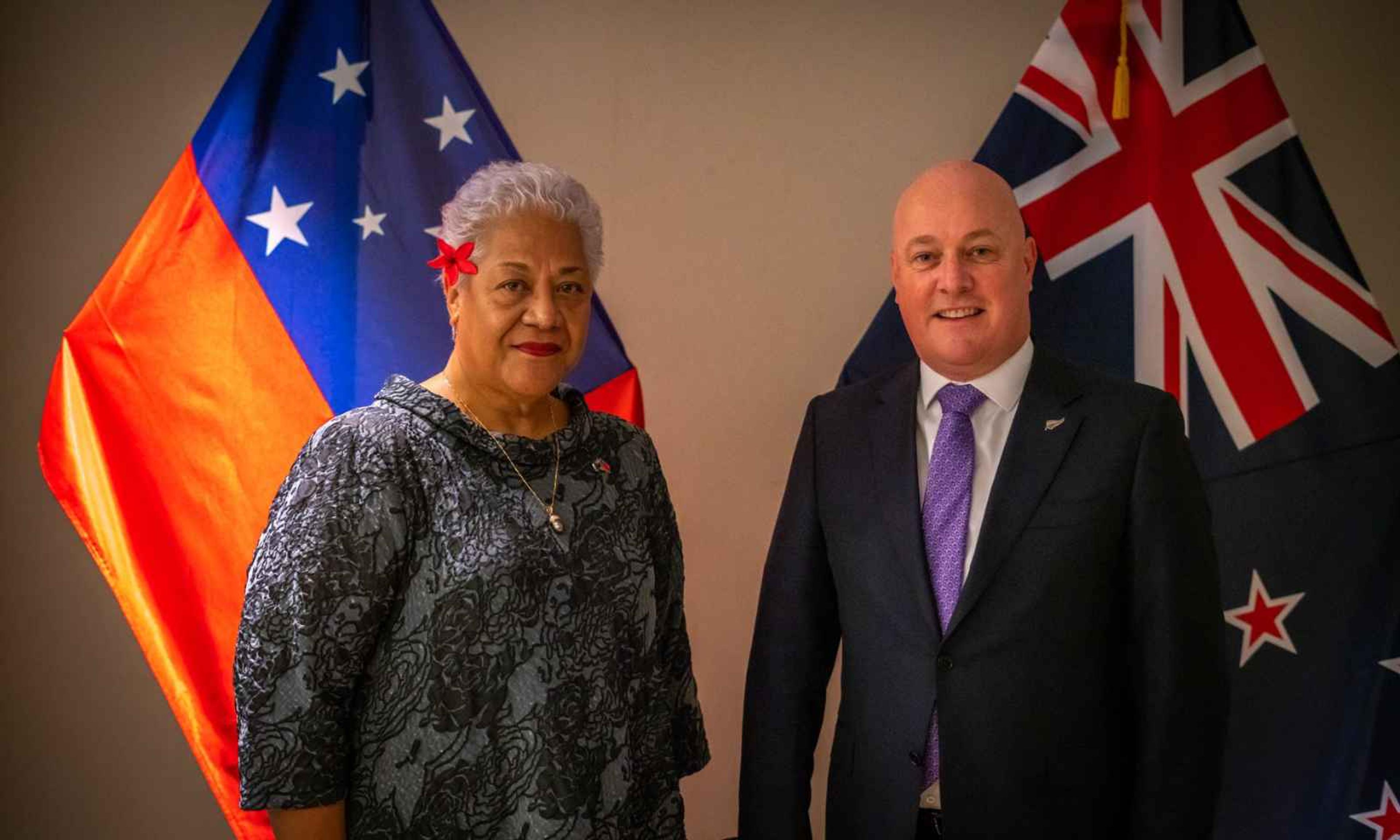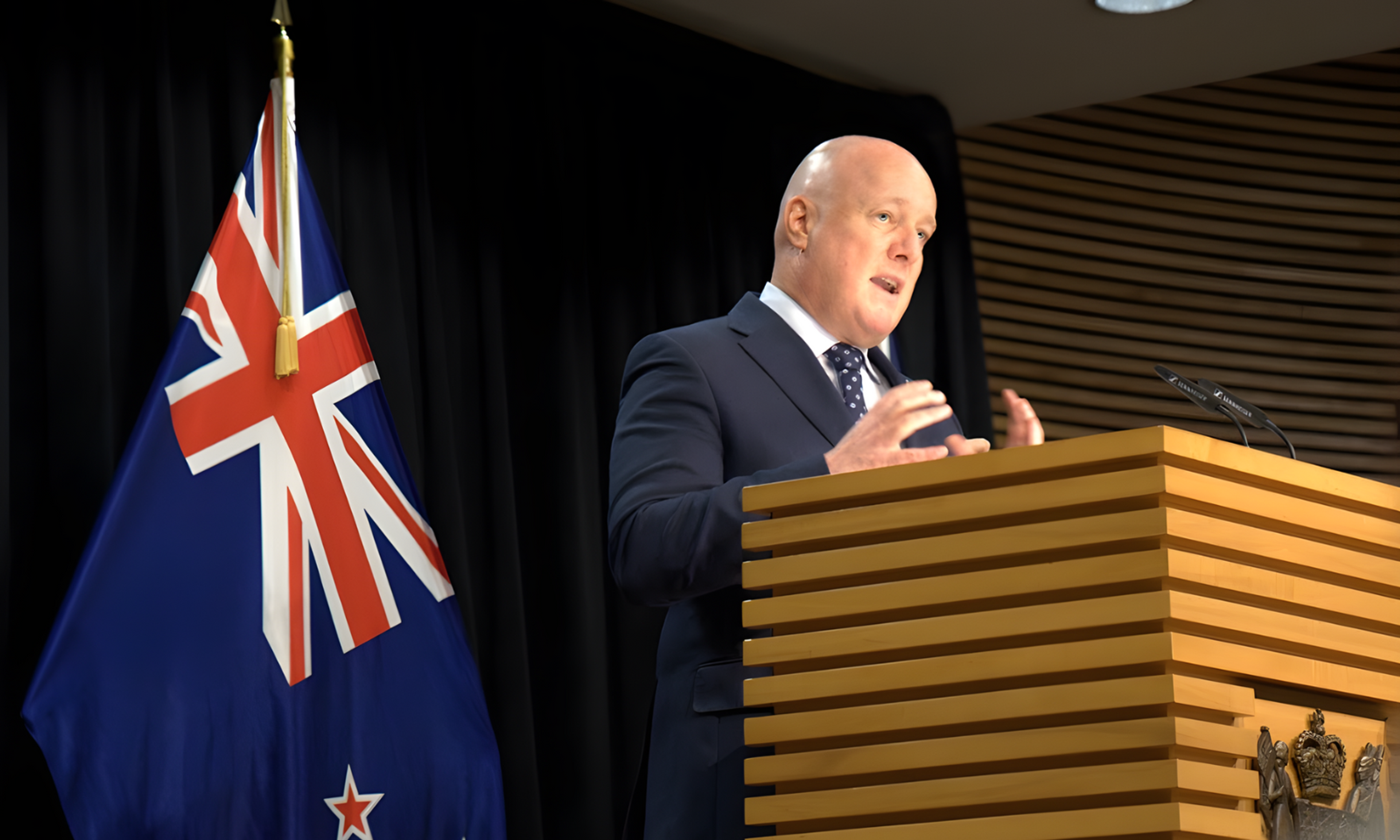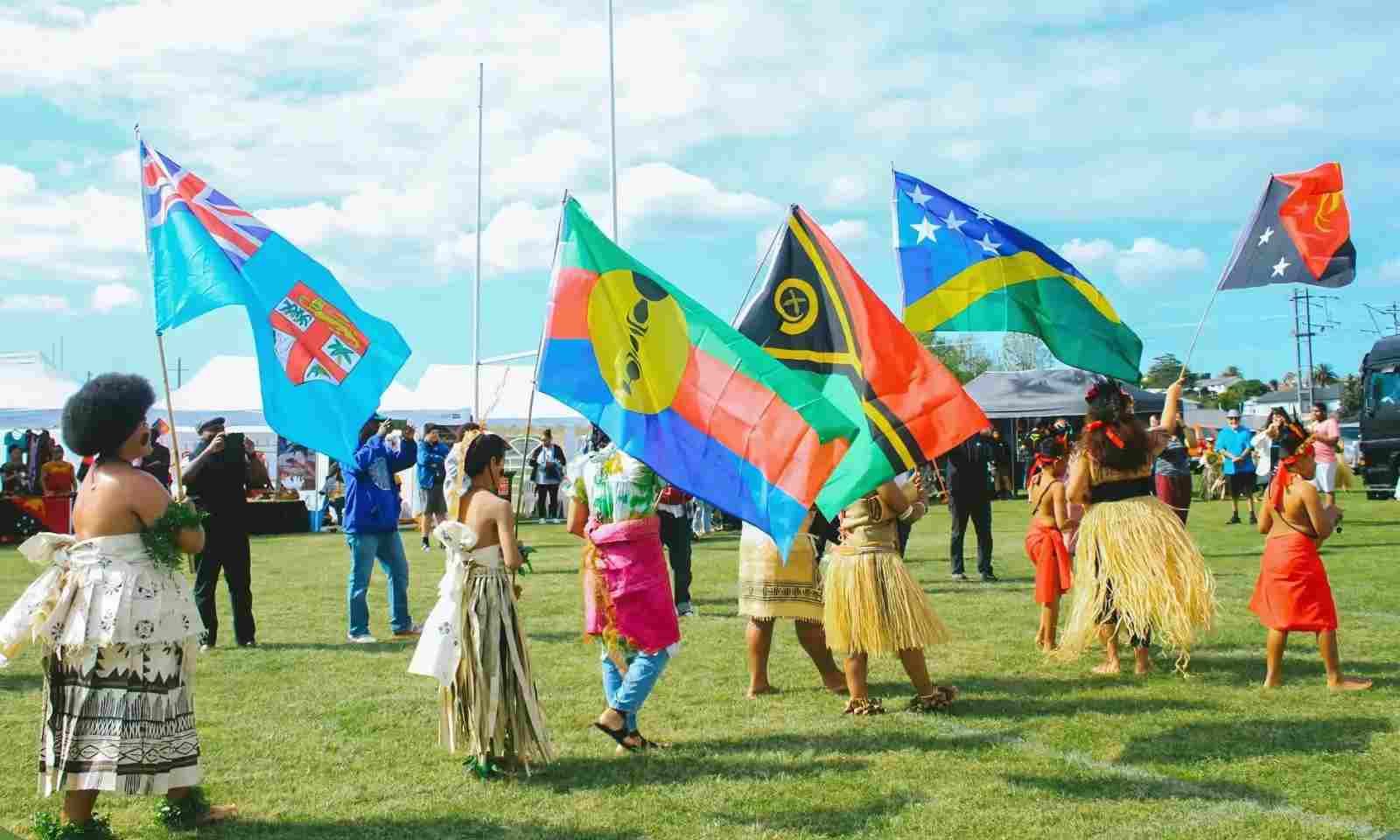

The Fiji military has about 12,000 soldiers in the force, including the army's reserve.
Photo/RFMF
MSG Summit: Pacific leaders postpone joint security strategy
The Melanesian Spearhead Group aims to address a range of threats in the region, including climate change and maritime safety.


Shifting Strategies: Japanese diplomacy grows as PNG, Australia sign defence agreement


Luxon rules out merging Ministry for Pacific Peoples this term

‘There wasn’t a negotiation’: PM on Manawanui payment

Shifting Strategies: Japanese diplomacy grows as PNG, Australia sign defence agreement


Luxon rules out merging Ministry for Pacific Peoples this term
Pacific leaders from Melanesia have decided to delay their decision on a shared security plan for the region.
The main focus of this security strategy is on tackling various threats, including climate change, the safety of people, and the need for countries in the Pacific to work together.
The Boe Declaration, which is a key agreement among the Pacific Island nations, highlights a broader view of security that includes protecting the environment and being prepared for disasters.
The security strategy is important because it could create openings for the Chinese government, particularly as China, Australia, and the United States compete for influence in the Pacific.
The Melanesian Spearhead Group (MSG), a subregional organisation that consists of countries such as the Solomon Islands, Papua New Guinea, Vanuatu, New Caledonia, and Fiji, is working on creating its first security framework, primarily focussed on maritime safety.
During a leaders' summit in Fiji last week, the group decided to postpone their decision.
According to media reports, Papua New Guinea's Foreign Minister, Justin Tkatchenko, has announced that PNG is yet to finalise a security strategy and that no agreement has been reached.
Tkatchenko says discussions, especially about Taiwan and how to address the differing views among members, were difficult.
The MSG inter-government group has drawn interest from Beijing, which even provided funding for its headquarters in Vanuatu, and previously indicated a willingness to consider China as a security partner.
The 18-member Forum has rejected the idea of security ties with China and believes the Pacific should take care of its own security.
Among the MSG nations, the Solomon Islands and Vanuatu are seen as having closer ties to China in terms of security.
Meanwhile, Papua New Guinea has agreements with the US and Australia, Fiji has a defence partnership with and security deals with the United States and Australia, and Fiji has a defence partnership with Australia.
Australia announced on Thursday that it would boost support for Pacific Islands to fight illegal fishing by increasing funding to A$477 million (NZ$514.8m).
The funding will help with aerial maritime surveillance over vast areas of the Pacific, using civilian planes and drones.
China, which has a large fishing fleet, showcased its coastguard capabilities to Pacific island ministers last month, raising concerns among regional officials that it might begin patrolling the South Pacific, where the US Coast Guard has been more active lately.

Melanesia Festival is celebrated in Aotearoa annually. Photo/Supplied
Members of the diplomatic corps attended the MSG meeting in Suva, including Australia's Pacific Minister, Pat Conroy.
It was his first time attending the summit, and he found himself sitting directly across from China's Ambassador Zhou Jian during the discussions.
Meanwhile, the Chinese Embassy in Fiji welcomed the meeting, stating that the Melanesian group is a "crucial platform for promoting regional peace and stability".
Australia is the largest trading partner of all members of the MSG.
Solomon Islands Prime Minister Jeremiah Manele told the meeting that progress has been made on a security strategy, emphasising the importance of collaboration for regional stability. But he didn't specify the partners involved.
Conroy told the meeting that Australia would provide 60 police vehicles, cybersecurity support, and road upgrades in Honiara ahead of the September Pacific Islands Forum leaders' meeting.
He also stressed the importance of Pacific-led institutions and processes.
Manele has not yet responded to Canberra's A$100 million (NZ$107.92m) offer to expand its police force.
Conroy says Australia does not support China's involvement in policing in the Pacific.
Meanwhile, the Solomon Islands intends to address security gaps by seeking help from Melanesian countries.